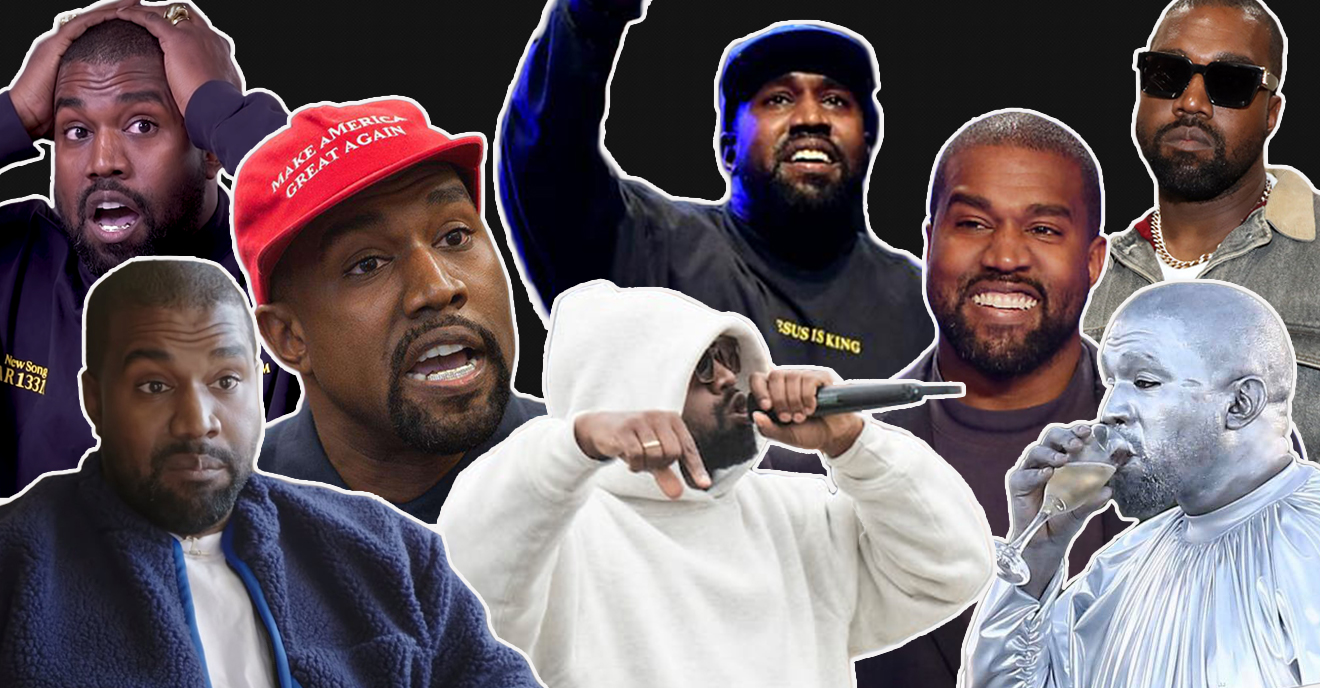We’re in the holiday stretch, and many of us will find ourselves at our generational homes or kicking back with our chosen family. Whether it’s at granny’s southern property that’s been paid off for years or a one-bedroom apartment in the city, there’s sure to be some lively conversation that will inevitably lead to Kanye West. We’ve seen a lot of antics from the billionaire and self-proclaimed genius this year. However, one of his most dangerous rants has seemed to escape criticism — namely, the false assertion that Black people do not care about or have not considered buying land.
"We want to spend all our money on luxury, as opposed to going and buying some land,” West claimed, in an October interview with radio personality Big Boy. "America is for sale, and there's a lot of barren land. Disney bought a lot of it in Florida. But the culture has you focused so much on f***ing somebody bitch, and pulling up in a foreign, and rapping about things that could get you locked up — and then saying you're about prison reform."
YouTube | BigBoyTV
West reiterated this sentiment in November on a New York Times panel, when he suggested Black people shouldn’t listen to what Black Twitter says because President Trump has made it easier than ever to buy land.
"Trump has actually opened up the ability to buy more land and in America — you know America, you can buy land and we can be owners and we don’t often have to be just the product of what black Twitter tells us what we’re supposed to do,” West said.
These statements imply that popular Black consciousness is against home and property ownership, and that Black folks trying to have an acre of land is a new idea President Trump exclusively will help us with.
Assertions such as these are not only inaccurate — they‘re dangerous, especially when used as an admonishment to Black people in front of white audiences. The truth is the history of land theft and property disenfranchisement for Blacks in America is long and storied.
From the moment southern Black Americans were promised financial independence and granted the infamous “40 acres and a mule" that never came to fruition, the dangling carrot of fair land ownership has proved a mirage. In the West, the Homestead Acts of 1860s was enacted, which resulted in the distribution of roughly over 270 million acres of land being given away to anyone in America who was willing to work it. Although the free land was open to anyone who had settled in America, including new immigrants, African Americans were excluded from this opportunity. According to historian Keri Leigh Merritt, the land rules ensured Black people "became the only race in the U.S. ever to start out, as an entire people, with close to zero capital.”
Surprisingly, some version of the Homestead Act was in effect well into the 1970s.
@MehrsaBaradaran details the historical inequity during the Reconstruction Era of the U.S. Congress giving land in the West to whites via the Homestead Act (previously stolen from Indigenous nations) while withholding land from freed slaves. #racism #injustice #Juneteenth pic.twitter.com/0WUw90OFla— Philanthropy NW (@philanthropynw) June 20, 2019
During Reconstruction, as the American government was giving out land to everyone — even those white folks who had just gotten to the U.S. — slavery 2.0 came in the form of sharecropping. Combined with Black Codes that rose to prominence in the 1870s, restrictive laws dominated southern labor, forcing would-be independent Black farmers to rent land — oftentimes from their previous captors — in return for housing and a portion of the crops. The sharecropping system was mostly used to force Black laborers into unfair contracts that would often keep them in constant arbitrary debt while blocking any chance of upward mobility.
Even still, as indicative of the Black American spirit, many Black landowners persevered and were able to obtain land and farms in the midst of constant discrimination and attempts from the state to steal their hard-earned property.
Published by The Atlantic, an article titled The Great Land Robbery details a discriminatory land grab created and maintained by federal policy.
"According to the Census of Agriculture, the racial disparity in farm acreage increased in Mississippi from 1950 to 1964, when black farmers lost almost 800,000 acres of land. An analysis for The Atlantic by a research team that included Dania Francis, at the University of Massachusetts, and Darrick Hamilton, at Ohio State, translates this land loss into a financial loss—including both property and income—of $3.7 billion to $6.6 billion in today’s dollars," the article's author Vann. R. Newkirk astutely pointed out.
In other words, the policy stole over $6 billion worth of land and income from Black Mississippians in a 14-year period. Such findings highlight the truth that any of our elders, or a good Black history class, can teach us — a truth West conveniently seems to misremember. As we gather around for the holidays, it can be easy to forget the disenfranchisement that many of our elders went through to obtain the family home we may be celebrating in — or even the land our ancestors lost. Kanye West has assumed that just because he recently discovered places outside of the hills of Calabasas or the suburbs of Chicago, many of us are late to the party too. As usual, he's wrong.
Black people have always tried to purchase land to live out our right of the American Dream, despite the lengths taken to ensure we don’t. Any other assertions, from Kanye or anyone else, can be looked at with side-eye and left in 2019.
